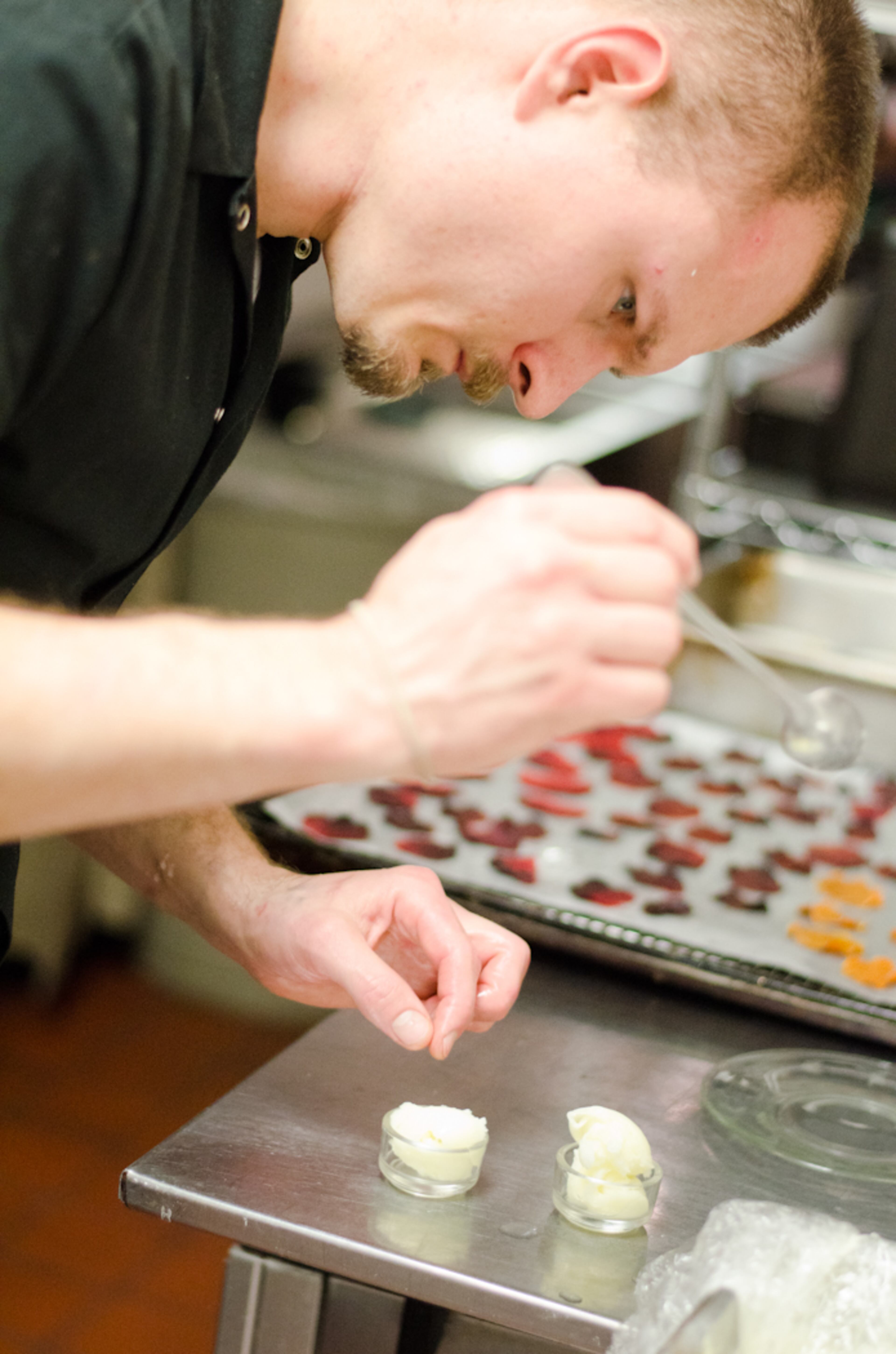SXSW panel: Does technology have a place in the craft culinary world?
The panelists: Alex Vallis, digital director of Food & Wine magazine; Darren Case, owner and distiller of Round Turn Distilling; Ian Brand, owner and winemaker of Le P'tit Paysan; and Michael Sohocki, owner and chef of Restaurant Gwendolyn and Kimura in San Antonio.

The gist: Can farm-to-table food and small-batch beverages be considered craft if they're produced with the use of increasingly high-tech systems? And where does technology like social media come in? These were the question at the heart of this panel, with all three panelists — Sohocki, a San Antonio restaurateur; Case, a Maine gin distiller; and Brand, a California winemaker — all coming to different conclusions based on the business models they've established and the missions of their companies.
The takeaways: Case, a former web developer, decided to switch from his lucrative career to make small-batch gin in a 150-year-old building five miles from the Maine coast. Like many smaller distilleries, his Round Turn Distilling uses a still that relies on very old technology — steam — to get power. But it's a modern machine made up of steel and copper, and the combination of both old and new innovations has led him to his "underlying belief that tradition is innovation in itself."
He doesn’t shy away from technology, especially social media, to grow his gin-making business. The only way to survive in this era of brand loyalty, which he says is particularly prevalent with spirits, is “to focus on building a brand that people could hopefully identify with and see themselves in. Social media was the only channel available for me.”
In that regard, his view is similar to that of Brand’s, whose winery is preparing to scale up the amount of wine produced. While a greatly expanded business can often mean that quality is sacrificed for efficiency and the bottom line, he also believes that technology is power, “giving you more information on the fermentations. I’m making 5 times the amount of wine as 10 years ago, but it’s better wine.”
Their opinions can not differ more widely from Sohocki’s, who opened the farm-to-table Restaurant Gwendolyn in San Antonio as “a revolt against the industrial food service operations, the now-conventional way of doing things.” The restaurant makes its food the old-fashioned way, even smoking its own bacon, and all of the ingredients come from farms and ranches within 150 miles of its location.
“When we talk about technology completely replacing the way things are, I worry very much for our future because that means slicing our past from our future,” he says. He’s uneasy about Brand’s mention of expansion because “there’s a level where it’s not sustainable,” with the result that we “end up with Cisco, McDonald’s, all these low-end lowest common denominator operations. When you scale up, that’s what happens.”
But Brand seemed to sum up the ultimate conclusion of the panel by saying that “it’s a learn-to-do-better process. Technology can be advantageous in helping us do what we do better than before.”

